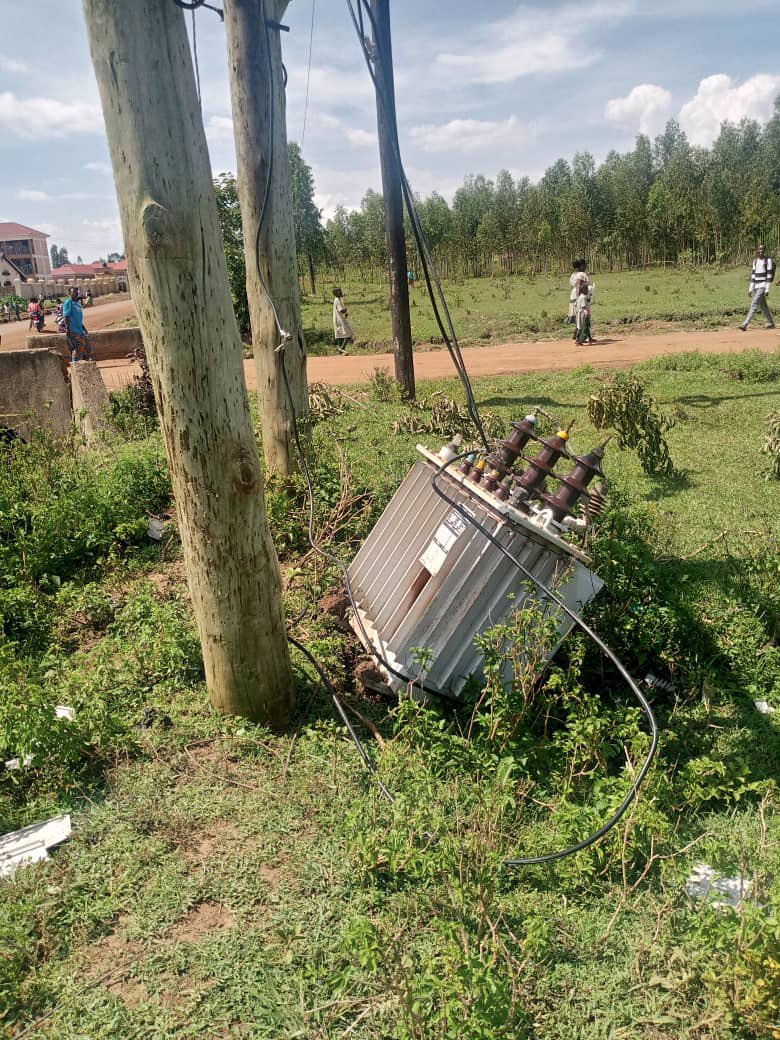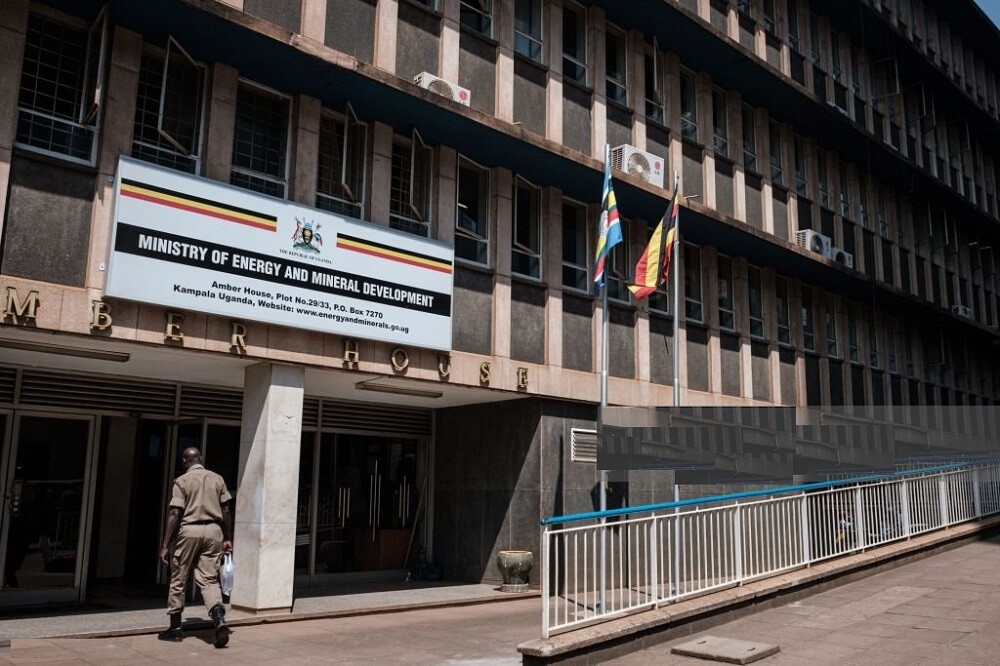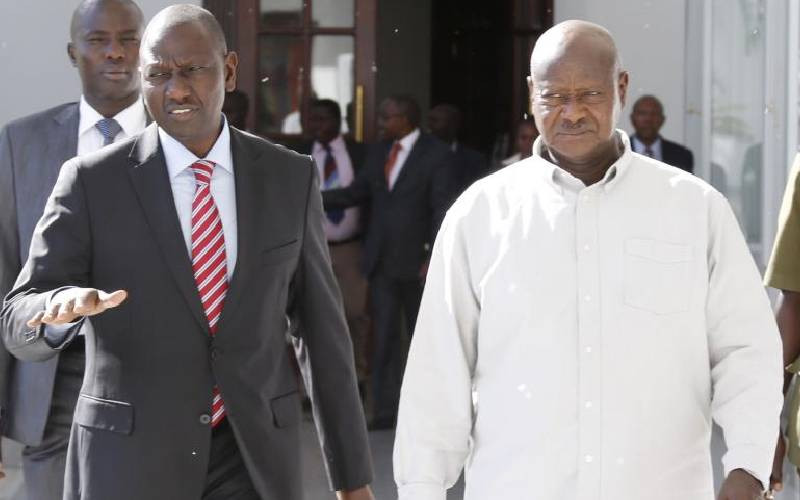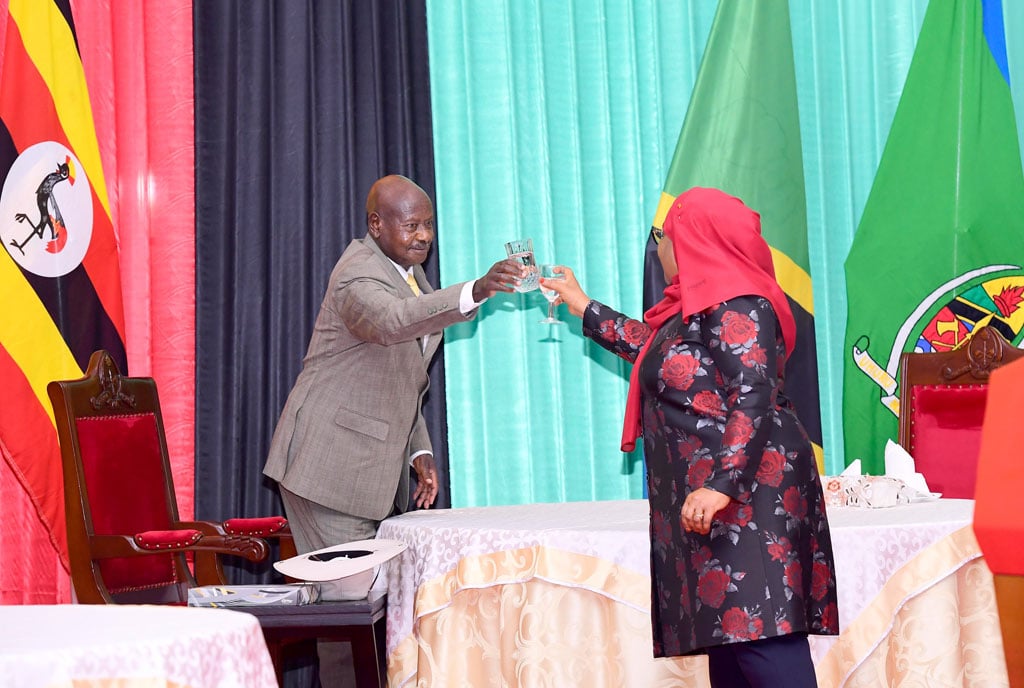Ugandan President Yoweri Museveni and Kenyan President William Ruto failed to resolve escalating tensions over oil trade in a recent meeting at State House in Entebbe, leaving investors uncertain about the future. The encounter, part of an extraordinary summit of Igad on the Sudan crisis and the Non-Aligned Movement conference, aimed to address the growing discord between the two East African Community partners.
Hopes were high for the summit to alleviate differences, particularly concerning fuel imports, a subject of recent contention. Prior to Ruto’s visit, Peninah Malonza, Kenya’s EAC minister, hinted at a resolution during the week, emphasizing the diplomatic need for the leaders to mend fences.
However, as of the latest reports, no deal has materialized, with sources indicating Uganda’s demand for unconditional licensing of the state-owned oil marketer, Uganda National Oil Company (Unoc), as a sticking point. In response, Kenya insists on Uganda withdrawing a case from the East African Court of Justice related to Unoc, allowing local court issues in Kenya to be addressed.
Kampala’s case in Arusha accuses Kenya of violating the EAC Treaty and the UN Convention on the Law of the Sea, emphasizing the obligation for partner states to share port and maritime facilities. Kenya counters by referencing a case in Nairobi, hindering Unoc’s progress.
Complicating matters, Kenya’s Cabinet has been indecisive on exempting Unoc from key requirements, including proof of owning a licensed petroleum depot and retail stations, annual sales volumes, and turnover. These conditions, denied by the Energy and Petroleum Regulatory Authority (Epra), are at the core of Uganda’s demands for exemption.
Kenya suggests a compromise where Unoc becomes one of many oil marketers licensed to use the pipeline, ensuring competition with Kenyan firms. This approach aims to protect Kenyan investors with fuel stations in Uganda and address trade imbalances exacerbated by a weakened Kenyan currency.
Despite Uganda’s threat to restrict goods from Kenya, oil remains unaffected for now. While no breakthrough has occurred, officials indicate a willingness to continue talks, maintaining the status quo of Uganda importing oil via Kenya.
Recent data shows Uganda’s continued reliance on Kenyan oil marketing companies, despite earlier plans to source oil directly from Vitol Bahrain. The unresolved dispute has unnerved Kenyan oil marketers, with potential business losses looming.
Kenya’s Cabinet Secretary Malonza downplays the situation, citing each country’s pursuit of trade interests and assuring a scheduled meeting between the two presidents to discuss the impasse. She emphasizes the normalcy of trade disagreements and underscores the historical economic ties between the nations.
As the stalemate persists, all indications suggest that resolution may take time, casting uncertainty over the vital oil trade relationship between Uganda and Kenya.




















